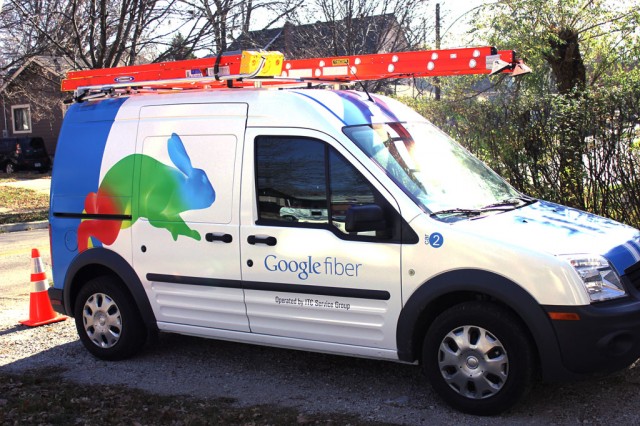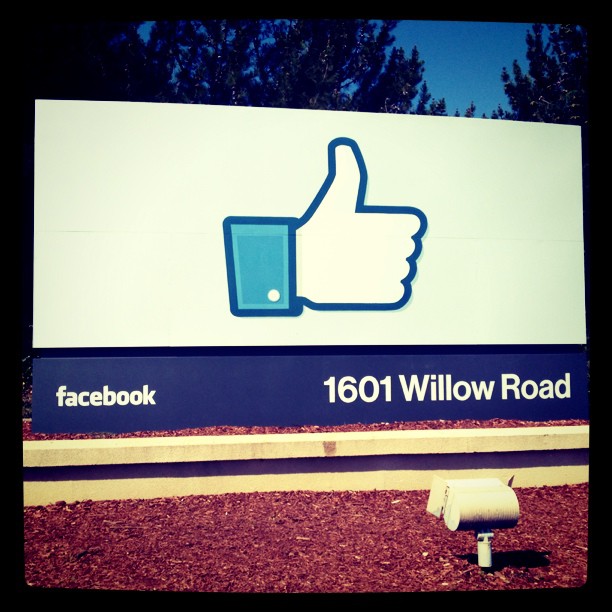
Here at the Ministry of Innovation we've been bringing you loads of stories about all of the interesting and (hopefully useful!) changes that are coming out of Silicon Valley and elsewhere. Out of all of those stories, we've selected six that we feel not only had the most impact, but whose effects will continue to be felt into 2013 and beyond.
#6: Car-sharing services launch, fight the law
Back in June I heard about two San Francisco startups—Lyft and SideCar—that had similar business models. By the next month, I became a driver for both companies. Both companies allow individuals armed with smartphones to moonlight as not-quite-taxi drivers. Then, potential passengers can pop open their own app and request a pickup from whatever point in San Francisco they like. Payment is all handled within the app via credit card. It's sort of like Uber, except for those of us that don't need to travel by black car. However, state regulators (to say nothing of the incumbent taxi industry) haven't taken too kindly to these companies.
We reported about how the California Public Utilities Commission (which deals with taxi regulation) hit the companies with a cease-and-desist in October. The following month, they were slapped with $20,000 in fines which naturally were appealed. But earlier this month, the CPUC seemed to have softened its tone and appeared willing to at least consider legitimizing these companies by changing the rules.
#5: Bitcoin goes mainstream
If 2011 was the year that Bitcoin first appeared on many people's radars (including Sen. Chuck Schumer (D-NY)), then 2012 was the year that the cryptocurrency began to, slowly, but surely, move into the mainstream. Ok, your non-techy friends aren't going to be ditching their greenbacks anytime soon—but there were some signs that the digital cash may be strengthening and headed towards more ease-of-use.
First, the currency's exchange rate is on the rise. In April 2012, a Bitcoin was worth just $4.50. By July it had nearly doubled. Today, one Bitcoin is worth about $13.50. That's a massive increase by any measure. Second, in August, a company announced that it would be creating Bitcoin-based debit cards for all to use. Then, the Bitcoin Foundation threw open its doors hoping to spread the currency's gospel far and wide. WordPress started accepting Bitcoins, too.
Finally, perhaps the most exciting development is that Bitcoin Central, which operates in France, has been authorized by local authorities to operate as a bank under French law. As we reported in December, "The accounts will also be integrated with the French banking system, so users can have their paychecks automatically deposited into their accounts and converted to bitcoins."
Still, Bitcoin isn't perfect and definitely has some hurdles to overcome. In March, the lack of "chargebacks" prompted a lawsuit between two Bitcoin-related companies. In September, a Bitcoin company sustained a theft worth $250,000. And worse still, an August 2012 academic study on Bitcoin found that it had helped fuel $2 million per month in illegal drug sales online. So don't liquidate your Uncle Sam-backed bucks just yet.

#4: Google (and other tech companies) get slapped for legal financial shenanigans
As we reported back in November, the “Double Irish” and the “Dutch Sandwich” are sadly not items at your favorite lunch spot. Instead, you'll find them on the menu of legal financial shenanigans available to multinational corporations. And for around a decade, major international corporations have taken advantage of these complicated shell company rules and tax loopholes that allow them to minimize their tax burden in the United States, Ireland, the Netherlands, and elsewhere.
While this technique has been going on for years, only this year did it reach discussion in the highest levels of government. Back in October, French authorities forced Google to pay $1.3 billion in back taxes. All of this came to a head when, in November, a British parliamentary committee chided Google, Amazon (and even Starbucks) with this quip: "We're not accusing you of being illegal, we are accusing you of being immoral."
Bloomberg News, which has done extensively investigative journalism on this issue, found in December that new filings show that Google's income-shifting has reached record levels, hitting nearly $10 billion that went to its Bermuda-based shell company.
#3: Financial schadenfreude
While I've been senior business editor at Ars for less than a year, there's one story that seems to consistently resonate with readers: it's what I've come to call financial schadenfreude.
There's been loads of examples of this over the past year. Back in August, following the expiration of Facebook's lockup agreements (which prevent insider trading and restrict sales of the stock during a certain period), many investors dropped the stock like a rock, which sent the share price plummeting.
Later in August, there were also signs of trouble at Zynga—which lost 70 percent of its value since the company's December 2011 initial public offering. A number of the company's top executives and managers were hired away to other companies, surely not a good sign. By October, Zynga announced it was taking a write-down for OMGPOP (makers of Draw Something), meaning that the company drastically overpaid.
By September, chipmaker AMD's CFO mysteriously left the company, which sent that company's stock price tumbling as well. The following month, a Wall Street analyst called AMD "un-investable". We wonder, as probably do many of you, how long AMD will be able to stay afloat.
Then in November, we brought you two stories of how Japan's once-great electronics sector was struggling. Sharp said that after losing over $3 billion in its latest quarter and still holding $10 billion in debt, there was "material doubt" over its survival and the company has asked the Japanese government for a bailout. Meanwhile, Sony's credit rating was downgraded to just-above junk, and it posted a loss of nearly $200 million in its most recent quarterly earnings.
And finally, Groupon. The daily deals site that was once the darling of everyone's inbox posted a quarterly loss of $3 million in November—the stock has lost 90 percent of its value since its IPO in 2011. Perhaps it should put its own stock, as The Oatmeal suggested, up for sale as a deal?

#2: Facebook's long-awaited IPO
The big news that Facebook would be opening up its financial doors and making company shares available through an initial public offering drew attention for the better part of 2011. Finally, by February 2012, it happened. The S-1 filing valued the company at $5 billion, a value that ballooned to $13 billion by May, when the company finally hit the NASDAQ exchange.
In the company's first quarterly report post-IPO, in July, the stock price took a hit following news that Zynga slashed its forecast for bookings—revenue less fees it pays Facebook. The other big question that looms large for Facebook is can it make money off of its increasing number of mobile users?
As we reported at the time, Facebook began its first ad campaign on mobile devices, with "Sponsored Stories" hitting handsets across the world. The company says that at the end of March 2012, there were 901 million monthly active users, with over half of those being mobile users, and 80 percent of those outside the United States and Canada.
More recently, Morgan Stanley got smacked with a $5 million fine over questionable behavior in the run-up to the IPO.
#1: Google Fiber finally arrives in all of its gigabit glory
After we first wrote about Google Fiber back in 2010, the search giant announced service's details and formally turned it on in 2012.
In July 2012, Google blew everyone away with pricing: Fiber is now the cheapest and fastest Internet connection anywhere in the country at $70 a month for 1Gbps. By contrast, Comcast's new 305Mbps costs more than four times that price. If Google does indeed expand to other regions of the country, it will certainly be massively disruptive.
For now, the service is limited to Kansas City, Kansas and is slated to expand across the stateline sometime next year. But we also found out that you, Ars readers, love reading about that sweet, juicy bandwidth. And so we delivered. We told you about efforts to lure startups to Kansas City, and when Google's service was finally turned on we told you about how real-world speeds came in around 700Mbps.
Ars sent me on a whirlwind tour of KCK, where I spent two nights at the Hacker Home, effectively ground zero of the "Kansas City Startup Village." The result? I discovered that the rest of the Internet is still largely too slow to really appreciate those high speeds.
More recently, though, Netflix agreed that Google Fiber is "now the most consistently fast ISP in America." Don't despair, though—Google's certainly not done with KCK or KCMO. The company says it wants to expand the service to other parts of the country. But where? Your guess is as good as ours.
Did we miss an important business item? What should we look ahead to in 2013? You know where the comments section is.
reader comments
12